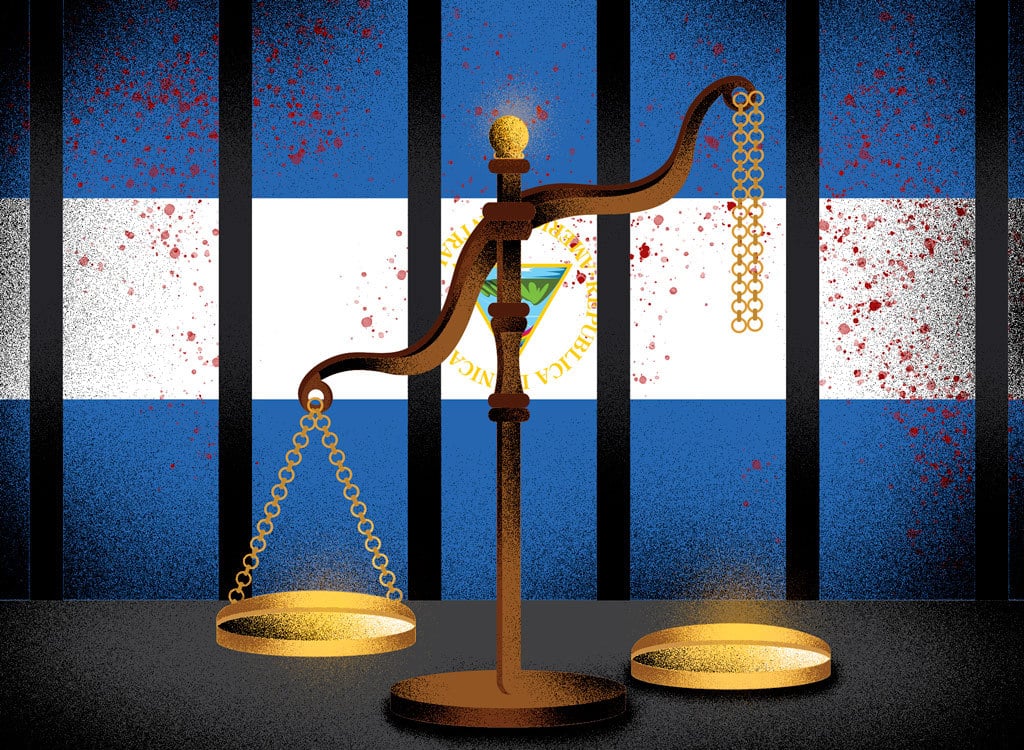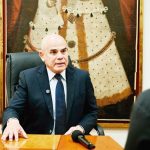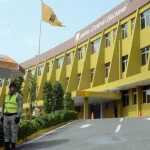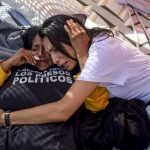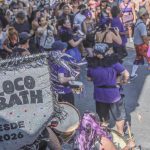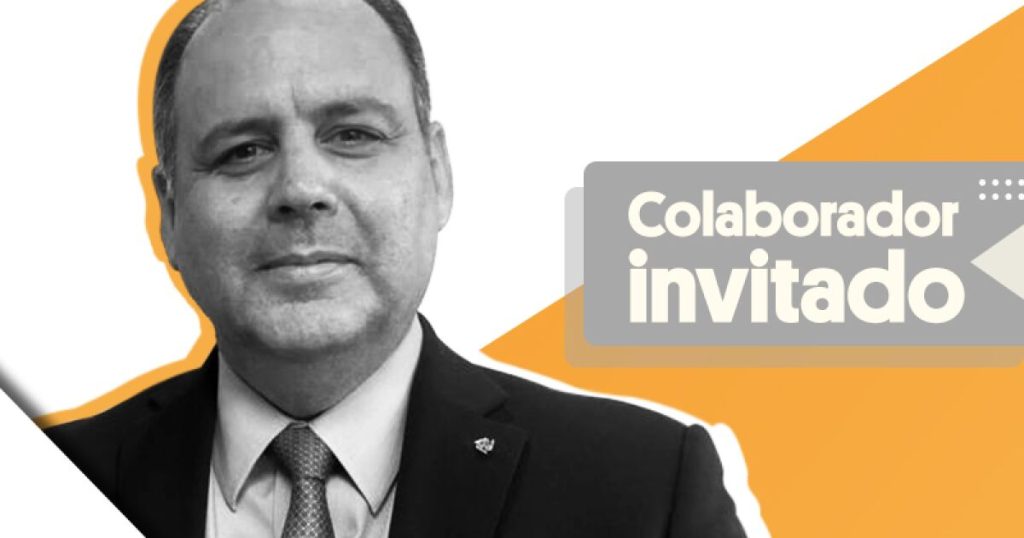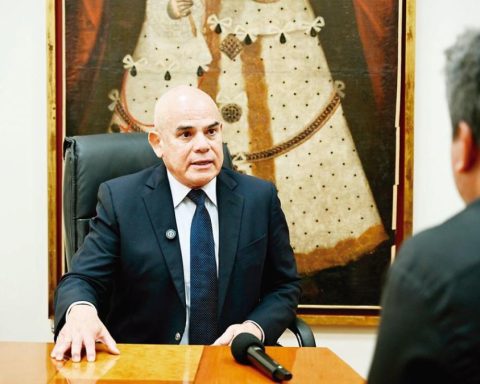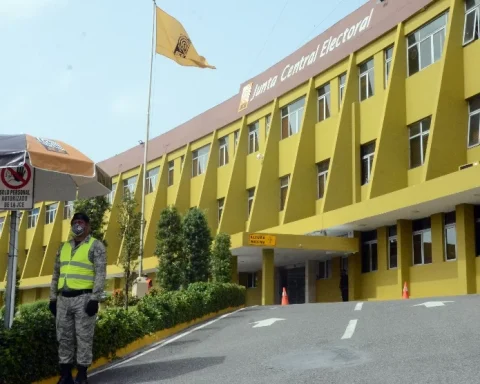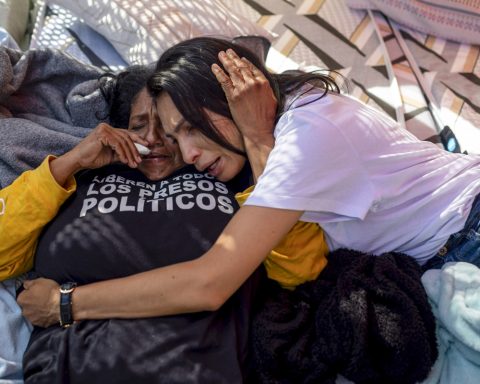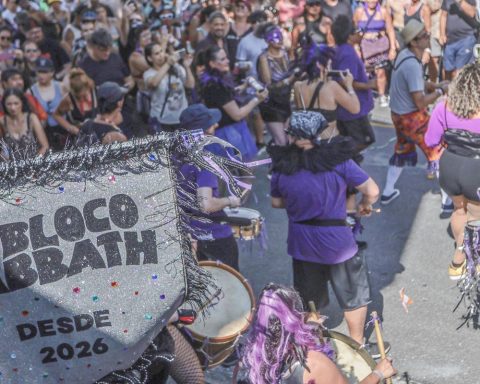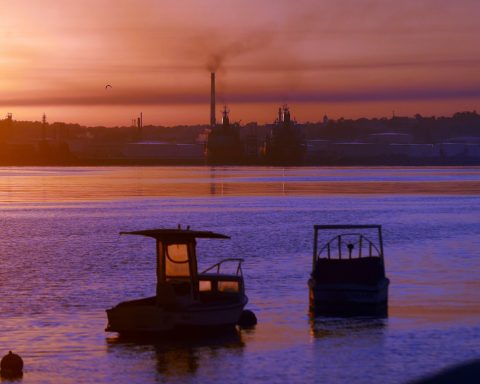With the blue prison uniform, the lawyer Mary Oviedo Delgado stood before the Ortega judge, Ulisa Tapia Silva. With a force that contrasted with her thinness and her opaque face, after seven months in prison and ten minutes of weekly sun patio, she questioned that they change the initial accusation of her case; an inadmissible fact in Law, but she did not flinch at her executioners. The detainee and human rights defender thanked her defender for her work, which the justice system of Daniel Ortega and Rosario Murillo criminalizes and blocks frontally.
The defense attorneys for the political prisoners, whose trials have been taking place for three weeks at the Judicial Assistance Directorate (DAJ), known as El Chipote, hardly develop their arguments during the hearings, in which judges and prosecutors close to Ortega have declared guilty to 20 opponents and sentenced to 15 with sentences of between eight and 13 years in prison.
“They don’t let us speak, they cut off our interventions. Perhaps, we are basing what we are saying and we are doing it on a legal basis: articles, doctrine, jurisprudence, and they cut us off. No, already, enough (the court tells them) ”, related the defender ‘Raúl’, who for security reasons asked that his identity be protected.
The repression against lawyers and the impediment to their work has escalated since 2018, when the regime began to fill the prisons with citizens who were involved in civic protests, and were accused of allegedly committing crimes of terrorism, organized crime and others. The accusations and evidence were fabricated from a special unit, created by the Public Ministry, under the command of the sanctioned attorney general Ana Julia Guido, revealed an investigation CONFIDENTIAL.
The pattern marked by the created accusations, the spurious evidence and the sabotage of the defense has prevailed since 2018, with the difference that now these political trials are “much more aggressive and much more violating than those of 2018 and 2019”, highlighted the lawyer ‘Luis’, who has lived through both experiences.
Boanerge Fornos, criminal lawyer, and former departmental prosecutor of the Public Ministry, was in charge of several processes of political prisoners in 2018, and closely follows the current trials. He explained that, before, lawyers had more access to court files and, although judges have always tried to hinder their work during the questioning of witnesses, in some way, the defense in court could argue with the judge; but currently that is impossible in the hearings that take place in El Chipote.
The four repressive laws
For lawyer Yonarqui Martínez, who represented dozens of political prisoners and has suffered reprisals for her work, the main difference between the past trials and the current ones is the existence of four “unconstitutional” laws, with which “they have tried to cover up what unconstitutional that they did before”.
Between October 2020 and February 2021, the regime passed a package of punitive laws: Foreign Agents Regulation Law; Special Cybercrime Law, known as the “Gag Law”; a reform to the Code of Criminal Procedure —which extends from 48 hours to 90 days the period for which a person can be detained without being charged—; and Law 1055 or Law for the defense of the rights of the people to independence, sovereignty and self-determination for peace, better known as the “Sovereignty Law”.
These have been used by the regime to criminalize critical thinking and demands for democracy by opposition leaders, condemning them for the alleged crime of “undermining national integrity,” and in other cases, “spreading false news.”
“The police have always harassed us and persecuted us. Before they threatened us, now they arrest us. They process us. Yes, there is a big difference,” Martínez said.
The danger of jail
“The risk of being arrested inside the police facilities is much higher if a lawyer has a very hard position in that aspect (arguments to the judge). That limits the exercise of defense,” said Fornos, who went into exile after threats of imprisonment.
“We go in and we don’t know if we’re going to come out, especially when one has his dimes and diretes with the judicial or with the police; in the end, you don’t know if they’re going to retaliate for everything you say to them in there,” said lawyer ‘Raúl’.
The fact that the trials were transferred to El Chipote —considered illegal— and that they were not held in court, as happened with the previous prisoners of conscience, limits the lawyers’ ability to work for several reasons: they make a search of them that they used to they did not, nor should they; prevent entry with certain work material; Within the police facilities there is greater vigilance over the lawyer and that generates pressure on the defender, Fornos lists.
Added to this list is the worsening of the criminalization and persecution against the defenders of political prisoners, since June 2021, after the regime’s hunt against civil society leaders to guarantee continuity in power, as a result of voting without political competition. .
Martínez recalls that in 2018 they had the advantage of “raising their voices”, but currently they cannot do so because “obviously we are detained”.
Lawyers agree that the current blockade is direct. They make an effort to do their job, but in practice, it is a formalism because materially they are not allowed to develop, Fornos points out.
Invasive searches and confiscation of evidence
Lawyers at El Chipote are subjected to excessive controls. They are detained 200 meters before reaching the DAJ offices, identify themselves to a police officer, and wait for their entry to be authorized.
At the reception, about six officers who take turns with the lawyer’s card to photograph him with their own phones. Meanwhile, a policewoman with a professional camera photographs the lawyer countless times. If the lawyers carry bags, they are also photographed.
The defenders are taken to a bathroom, where their shoes are checked, they are instructed to take off their shirts, unbutton their pants, and in the case of women, the search can be more invasive, including the confiscation of earrings, chains and rings, which are returned when leaving. “All that’s left is for them to undress one, they don’t have much,” ‘Luis’ claimed.
“They already have an album of mine there, who knows how many photos,” ‘Raúl’ complained.
The Police have also taken testimonial evidence or notes about the trials that the lawyers would use in their defense, confirmed CONFIDENTIAL.
“There is a violation of our correspondence as a lawyer because they read our notes without authorization, our notes that we took from the previous trial. Moreover, if there is a piece of paper that they did not like, they take it away from us and it is occupied. And that is illegal because we are not in the act of committing a crime, there is no court order to seize our belongings, “protested the ‘Auxiliadora’ lawyer, who also requested that her name be omitted for her safety.
To get to the courtroom, they are transferred in a minibus in which an officer also accompanies the driver. Before entering, another policeman photographs the defender’s card. In the auditorium converted into a court, there is already the judiciary, the prosecutors, who unlike the lawyers who have just been stripped of almost all their belongings, they do have a computer, cell phones and documents. There are also about six or eight officers on watch.
Lawyer Mynor Curtis, defender of several political prisoners, had his computer seized prior to the trial. He complained to the judge, but the judge replied that there was nothing he could do. Curtis needed his team for the defense because he had the Criminal Procedure Code (CPP) and another compendium of laws on file.
The blockade of legal defense violates article 34 of the Political Constitution of Nicaragua, which in numeral four, indicates that every citizen has the right “to be guaranteed his intervention and due defense from the beginning of the process or procedure and to have time and adequate means for its defense.
Sabotage of your claims
It has been difficult for defenders to access the files of prisoners of conscience. Even during the hearings, they have been prevented from communicating with the accused.
Last week, the Permanent Commission on Human Rights (CPDH) denounced that the courts show a clear bias against prisoners of conscience, as part of the irregularities of the right to defense and due process.
After months of filing court documents, the lawyers partially obtained the files of their clients. This violates article 124 of the CPP, which establishes that the parties —the Prosecutor’s Office and the defense— may obtain simple copies of the judicial proceedings without any formality.
‘Luis’ reported that the files, until before the initial hearing, “did not even appear in the Nicarao system, of the Judiciary. It simply did not exist, no matter found said the process and that is why we have not known a large part of the proceedings”.
The atmosphere in the hearings is “hostile”. The lawyer “Luis” considers that he made his allegations with some freedom, but the judge rejected them all. “It caught my attention several times. He warned me, he warned me on one occasion that he was going to deprive me of the right to speak if I continued with that plan”, he expressed.
This situation is recurrent in the hearings, including the one in Oviedo. The lawyer was arrested for violating Law 1055 and charged with the crime of “undermining national integrity” and “propagation of false news”. The evidence presented by the Prosecutor’s Office was interviews given to the media, where Oviedo explained legal procedures.
In El Chipote the Police rule and not the judge
In El Chipote, the Police are above the judiciary, despite the fact that article five of the Code of Criminal Procedure indicates that the “control of proportionality of the acts of the National Police and the Public Ministry will be exercised by the Judge, and those of this by the court of appeals through appeals.”
However, at the time of authorizing the defense to talk with the inmate or family member, the Police have the last word and not the court, defense attorneys confirmed.
“When we talk about the pyramid of how the distribution of powers is exercised, the Police are at the last level. However, they give the Police powers superior to those of a judge”, questioned ‘Auxiliadora’.
For ‘Luis’, the judges are depersonalized of their authority because they argued that the ones who authorize speaking with the inmate are the policemen who are guarding them, which is “unheard of”.
“The word of the judge has no greater value. The police are in charge there,” said ‘Raúl’. However, the group of 15 judges and prosecutors who are cruel to political prisoners, “are actors in the crimes that are being committed here” and will have to be judged, Cenidh president Vilma Núñez said in a recent interview.
In front of the judge, the lawyer Oviedo also spoke about the principles of Law. “She explained it to them,” a source confirmed. They didn’t interrupt her. She finished her speech and left her with her hands handcuffed with cable ties, and placed next to her head, preventing her from seeing the room where the Ortega justice found her guilty of a crime that was not proven.
